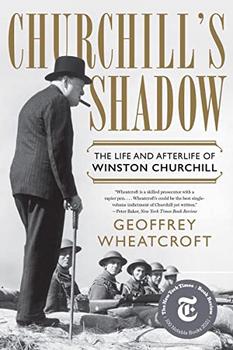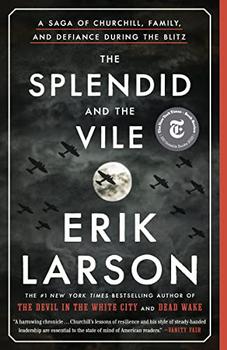Summary | Excerpt | Reviews | Beyond the book | Read-Alikes | Genres & Themes | Author Bio

An Extraordinary Re-Creation of World War II Through the Eyes and Minds of Hitler, Churchill, Roosevelt, And Stalin
by Simon Berthon, Joanna PottsFrom the book
jacket: In a unique combination of
innovative style and thorough
scholarship, Warlords tells the
story of World War II through the lives
of the four great war leaders: Adolf
Hitler, Joseph Stalin, Winston
Churchill, and Franklin Roosevelt. While
their nations fought battles with
weapons, the four warlords of the
twentieth century fought a war of the
mind. Structured along the lines of a
cinematic thriller, rapidly cutting from
one man to the next, the book takes us
blow by blow as they try to out-think and
outfight each other. These encounters
are told on a day-by-day, even
hour-by-hour basis, affording
unparalleled insights into parallel
actions.
Though there have been many single, and
some dual, biographies, no previous book
has put these four great figures
together in this exciting and popularly
appealing way. Moving from Whitehall and
Washington to the Wolf's Lair and the
Kremlin, Warlords documents the
psychological battles among the leaders
and shows how their thoughts and actions
changed history.
Comment: The juxtaposition of the four story lines in Warlords, gleaned mainly from journals and
eye-witness accounts, is fascinating.
For example, as the focus moves from one
leader to another, and back again, one
feels the increasing pressure on
Churchill and the British people as they
hold out alone through two years of war,
paralleled with Hitler's increasing
frustration as to why the British won't
behave reasonably and surrender! His
conclusion was that Britain must have
signed a secret treaty with the Russians, which caused him
to turn on them, making an enemy of a
former ally, and opening a second front.
The relationship between Roosevelt and
Churchill is particularly fascinating. Today,
they are usually portrayed as
bosom-buddy allies, but the journal
entries and eye-witness reports of the
time portray a quite different
relationship. In fact, it appears that
Roosevelt considered Britain's imperial
ambitions to be a greater threat than
Stalin's, and considered Stalin the sort
of person that he could do business with.
"The European people
will simply have to endure Russian
domination in the hope that, in ten or
twenty years, the European influence
will bring the Russians to become less
barbarous"
- Roosevelt,
speaking in 1942.
Time and again, Roosevelt leads Churchill to believe that the USA is ready to go into the war, only to back out again. Even the much vaunted Lend-Lease Act only provided 1% of Britain's weapons during the lonely year of 1941; and it took the Germans to declare war on the USA in December 1941 to eventually bring America into the war in Europe.
![]() This review was originally published in The BookBrowse Review in April 2006, and has been updated for the
May 2007 edition.
Click here to go to this issue.
This review was originally published in The BookBrowse Review in April 2006, and has been updated for the
May 2007 edition.
Click here to go to this issue.

If you liked Warlords, try these:

by Geoffrey Wheatcroft
Published 2023
A major reassessment of Winston Churchill that examines his lasting influence in politics and culture.

by Erik Larson
Published 2022
Winner of the 2020 BookBrowse Nonfiction Award
The #1 New York Times bestselling author of The Devil in the White City and Dead Wake delivers a fresh and compelling portrait of Winston Churchill and London during the Blitz.
Courage - a perfect sensibility of the measure of danger, and a mental willingness to endure it.
Click Here to find out who said this, as well as discovering other famous literary quotes!
Your guide toexceptional books
BookBrowse seeks out and recommends the best in contemporary fiction and nonfiction—books that not only engage and entertain but also deepen our understanding of ourselves and the world around us.